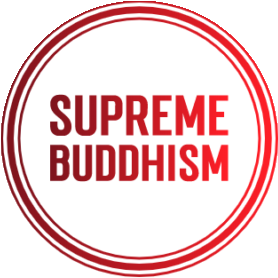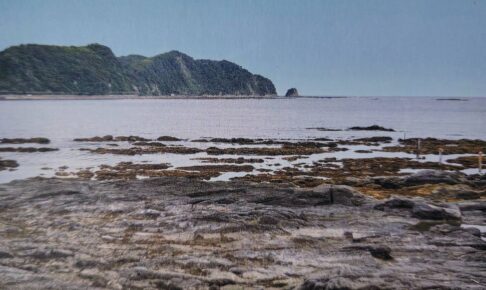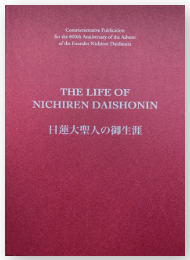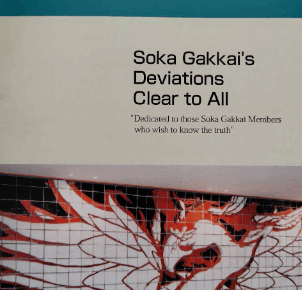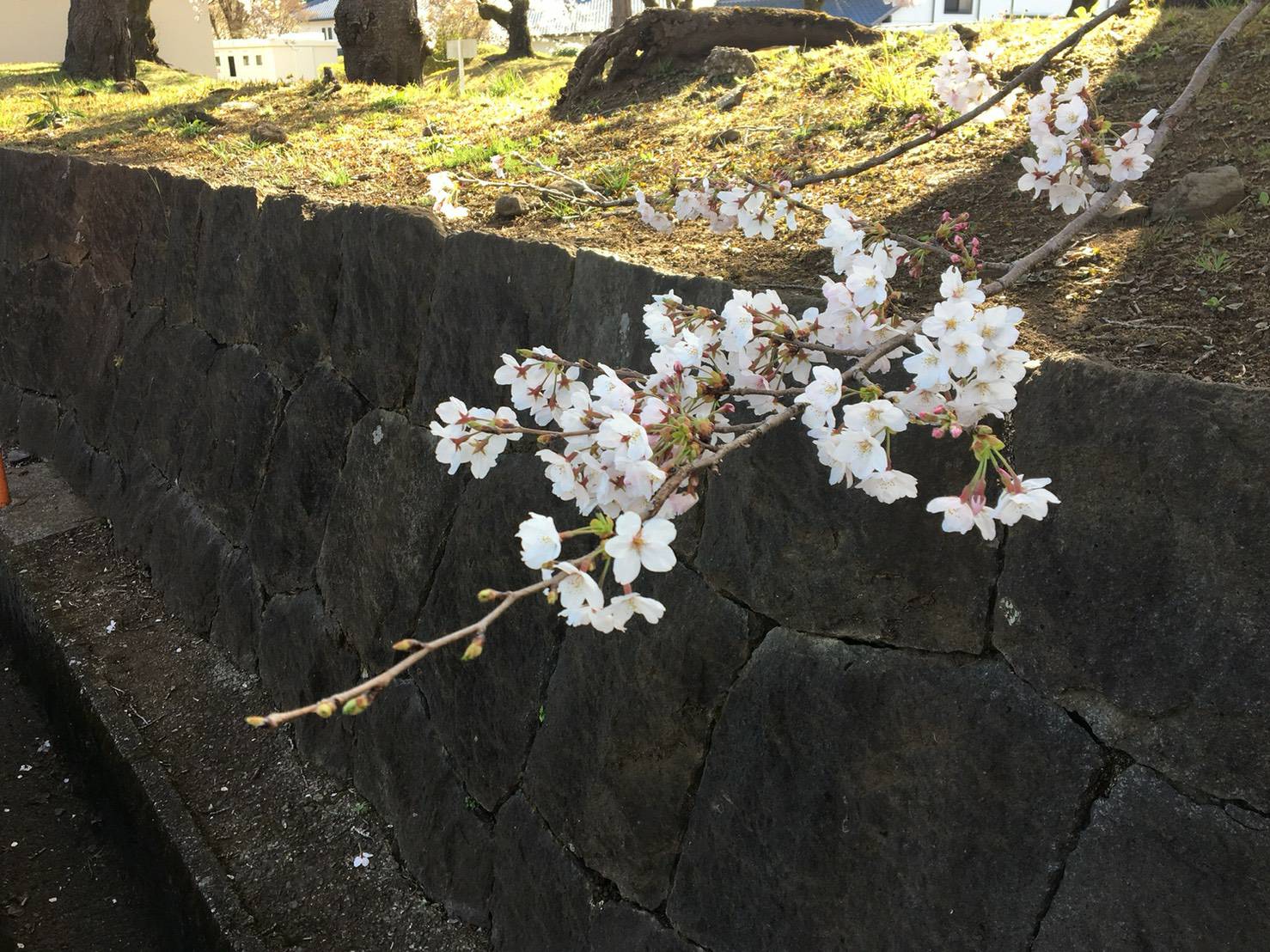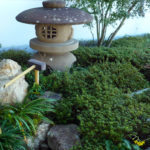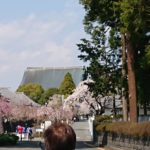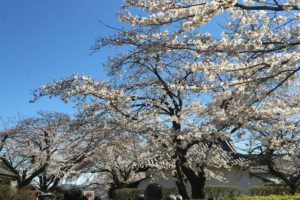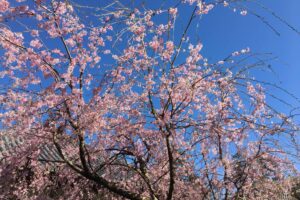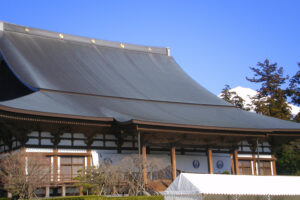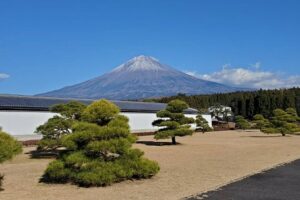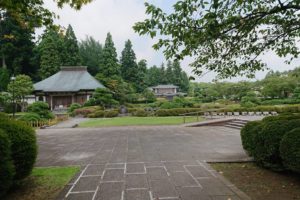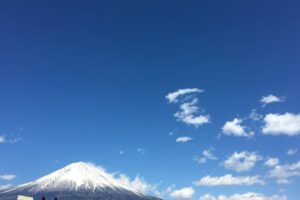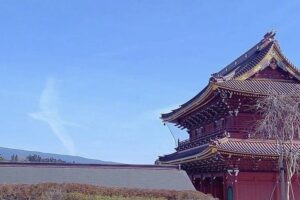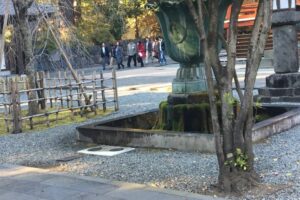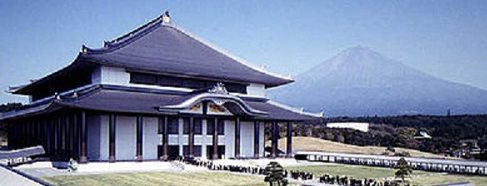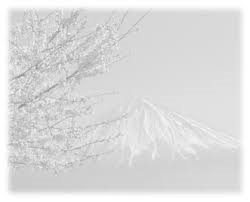The fourth stage of the treatise “On Securing the Peace of the Land through the Propagation of True Buddhism” (Rissho ankoku ron) commences with the visitor’s indignant response to the master host, who, in the previous stage, stated that evil monks were responsible for causing calamities and misfortune.The visitor argued that the priests in society were well respected by all people, ranging from the common masses to those of high social standing; and they had brought the people together in faith.The visitor further argued that, if they were evil monks, they would certainly not receive the people’s respect and trust.The visitor then pressured the host asking, “To whom are you referring when you speak of’evil monks?’ I would like an explanation.”
In response, the host named an actual person. He stated that Honen was an evil monk. He then proceeded to use the sutras and principles to launch a meticulous denunciation of Honen’s contradiction s. The host cited the arbitrary interpretations in the writing, “The Sole Selection of Nembutsu” (Senchaku shu). The host behaved with great composure, based on the conviction that he held. His position was supported by both documentary and theoretical proofs. In stark contrast, the visitor exhibit emotional outbursts of indignation.
The host’s calm and composed life condition was a manifestation of actual proof, based on his solid confidence in the essential principles of Buddhism and the Mystic Law. His presentation was not merely an emotional explanation , His descriptions were entirely based on the perspective of Buddhist doctrine, and were also an expression of his compassion. As he patiently engaged in the discussion, there was an obvious difference between the profound demeanor that he manifested, and that of the visitor.
Finally, the host terminated this stage by stating, “Rather than offering up ten- thousand prayers. for remedy, it would be better simply to outlaw this one evil doctrine that is the source of all the trouble! “He stated that the elimination of the fundamental cause of the problem was a concrete and practical way to avoid disasters.I have thus far Outlined the contents of the fourth stage.
During the lifetime of the Daishonin, Honen’s Jodo sect enjoyed tremendous popularity.The visitor in the passage obviously thought highly of Honen. Since the master host pointed out to the visitor that Honen was the source of disasters and misfortune, that visitor was tremendously shocked and outraged. He expressed emotionally.This expression of human emotion was not unreasonable.People live with their individual convictions. These convictions are gradually formed through the experience and knowledge that such people have heretofore gained.When someone rejects these convictions, people will feel as though they, themselves, have been rejected. Thus it is not unusual for such people to react emotionally.
We live our daily A familiar example is the way we look upon our daily meals.If we begin wondering whether or not our food contains poison, we are left with no option but to starve to death.However we are lives based on a sense of trust and belief. not always conscious of it, the entire of our daily conduct is premised on an element of trust.In our actions, we choose the conduct that we believe to be correct, based on our past experiences and knowledge.Before eat a meal, we check to see if the food is Fresh, if it is worthy of our trust.So, it is clear that trust and belief are extremely important.What we trust and believe, based on a specific judgment or reasoning, will inevitably form our individual perspectives and values, and these values will tremendously affect the course of our lives.
Moreover, in the process of religious worship, people are powerfully influenced by the object of worship that they uphold.There is nothing that possesses stronger control and influence than this object of worship. an inferior object of worship that negatively affects them and if they believe in an erroneous religion, they will be influenced by that object of worship and the teachings. These people will gradually descend into lite of confusion- a life that lacks clarity.So, they will ultimately lead an unhappy life, Moreover, when these individual lives that lack clarity permeate society, then the guardian deities, whose foremost function is to protect those who uphold True Buddhism, will take their departure.As a result, calamities will occur ubiquitously and social conditions will deteriorate. The Daishonin further pointed out that, under such conditions, the human spirit will be characterized by increasing desolation.
Therefore, it is extremely important to clearly assess the distinction between truth and heresy.The Daishonin taught that the evaluation of this issue cannot be based on our emotions.It is not an exaggeration to say that, for the most part, people do not consciously evaluate whether or not a certain religion is a worthwhile objective for their faith.This condition is caused by their ignorance concerning the founder of the religion, the object of worship, the practice, and the doctrines.The visitor in the present passage symbolizes such ignorance.
In response to the visitor’s emotional opposition, the Daishonin, who is represented by the master host here, proceeded to clearly explain why he declared that Honen was a source of evil. He referenced the writing, “The Sole Selection of Nembutsu” (Senchaku shu), in which Honen gave instructions to discard, close, conclude , and cast away the entire of Shakyamuni’s teachings and all the Buddhas and bodhisattvas other than the three Pure Land Sutras, and the Pure Land (Jodo) scriptures.The host used sound logic and documentary proof to show that Honen ‘s views were heretical and opposed the teachings of Shakyamuni.
The source of the Jodo faith can be found in the teachings of T’an-luan, Tao-ch’o and Shan-tao of China.These teacher monks classified Shakyamuni’s doctrines into the Sacred Way teachings (Shodo -mon), the Pure Land teachings (Jodo-mon), the Difficult- to-Practice Way (Nangyo-do), the Easy-to- Practice Way (Igyo-do), the Correct Practice (Sho-gyo) and the Other Miscellaneous Practice (Zo-gyo). These doctrines themselves failed to correctly convey Shakyamuni’s true will. But Honen made matters worse by further distorting them in his own interpretations. The original Chinese founders of the Pure Land (Jodo) doctrines did not mention the Lotus Sutra and the Shingom teachings. But Honen expounded a broad interpretation and stated,
“Jadging from this, we may assume that the esoteric Mahayana doctrines of Shingon and the true Mahayana teachings of the Lotus Sutra are both included in the Sacred Way” (Gosho, p. 239 MW-2, p. 171) .
Thus, he included the Lotus Sutra as an element in the Sacred Way teachings, the Difficult-to-Practice Way, and the Other Miscellaneous Practice.He rejected the Lotus Sutra as a doctrine that must be discarded, closed, concluded and cast away His reasoning was that that Lotus Sutra was too profound to comprebend, and therefore, no one would be able to attain enlightenment, even if he or she practiced it. Thus, he advocated taking faith in the Pure Land of Jodo, which he asserted would enable anyone to easily achieve enlightenment.
The teachings of Buddhism are based on the enlightenment of the True Buddha. These teachings are arranged in the form of sutras .The sutras must not be independently and arbitrarily interpreted by different individuals.Any one who presents.an arbitrary interpretation is a slanderer of True Buddhism, who opposes the will of the Buddha, Those who follow such a person are also guilty of the same sin and will accumulate negative karma for slandering True Buddhism.It is therefore a matter of course that they cannot achieve the life condition of enlightenment.
The Daishonin considered Honen’s broad-scale interpretation to be extremely alarming.This was particularly the case, since the fundamental error of the Jodo faith, which was a dominant presence in society at the time, was induced to the arbitrary interpretation of Honen as an individual.
The Daishonin expressed His admonition to show that Honen’s singular act was the cause of the calamities that befell society at that time.All phenomena are governed by the Law of Cause and Effect. We must understand that, to eliminate calamities, it is essential to first determine, fundamental cause and destroy it.First, we must uphold True Buddhism.In this sense, the singular evil that exists today is Ikeda’s Soka Gakkai.The essential existence of Nichiren Shoshu is based on the Lifeblood Transmission of the Law to a single person and on the Dai-Gohonzon of the High Sanctuary of True Buddhism.The following is an excerpt from the Gosho,
“Heritage of the Ultimate Law of Life” (Shoji ichidaiji kechimyaku sho):
Without the Lifeblood of Faith, it would be useless to embrace the Lotus Sutra. (Gosho, p. 515, MW-1, p. 25)
This passage means that, without the Lifeblood Transmission of the Entity of the Law to a single person, we cannot attain Buddhahood, even if we worship the Dai- Gohonzon of the High Sanctuary and even if we exert a great deal of effort in our practice of chanting Daimoku, Today, of all the innumerable religions that exist throughout the world, none other than the Ikeda Soka Gakkai has opposed the Lifeblood Transmission of the Law to a single person and has launched an endless barrage of criticism and slander, directly and on a worldwide scale.
The following passage is from the Gosho,
“Observations of the Shingon” (Shingon kenmon):
Slandering the Law is tantamount to slandering the Buddha and the Priesthood, since the Three Treasures are united as one entity. (Gosho, p .608)
As this passage explains, the act of criticizing and slandering the High Priest, who is the Treasure of the Priesthood, directly corresponds to slandering the Dai- Gohonzon and the Daishonin. Through the Daishonin ‘ s instructions set forth in the Rissho ankoku ron, we must firmly realize that the fundamental cause of the current human conflict and delusion in society lies in the slanderous conduct of the Ikeda Soka Gakkai. We must etch in our hearts the Daishonin’s direction that, ” rather than offering up ten thousand prayers for remedy, it would be better simply to outlaw this one evil doctrine that is the source of all the trouble! “Based on this, let us advance forth in our practice of shakubuku and re- shakubuku.
